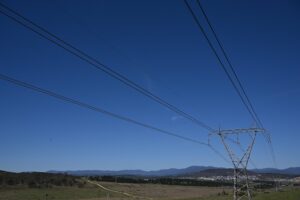A new study by Oxford University – commissioned by HSBC Bank – has highlighted how changes in China’s future coal consumption is likely to have significant consequences for Australian coal investments, and could lead to stranded assets.
Commissioned by the HSBC’s Climate Change Centre of Excellence and entitled Stranded Down Under? Environment-related factors changing China’s demand for coal and what this means for Australian coal assets, the report highlights the changing nature of the Chinese Government’s use of coal and the impacts on resource rich Australia.
“China’s demand for coal is changing as a result of environment-related factors, including environmental regulation, developments in cleaner technologies, air pollution, improving energy efficiency, developments in gas markets and political activism,” Ben Caldecott, co-author of the report and Director of the Stranded Assets Programme said.
Currently, China accounts for half the world demand of coal and has a domestic market three times the size of the international market. It is largely the price setter for the international market.
Australia leads exports to China at 32 per cent, followed by Indonesia at 26 per cent and Russia at 10 per cent. Coal exports to China represent a significant and increasing proportion of Australia’s national income, in the 2012-13 year alone exports were AU$38.9 billion or 16 per cent by value of exports.
“[These factors] could lead to less demand from China and lower coal prices, which would increase the risk that Australian coal mines, reserves and coal-related infrastructure become stranded assets.”
“These developments are not factored into the positions that most coal owners and operators are currently taking. Policy makers need to wake up to these risks as well,” he said.
Many planned projects and mine expansions in Australia – such as the mega coal projects planned for the Galiliee basin – are considered feasible based on current high coal prices. But if the world price drops, which the report says will, many projects will be forced to be shelved.
“This report raises one simple question for investors, should any more capital be allocated to new coal projects?” Nathan Fabian, Chief Executive of the Investor Group on Climate Change (IGCC) Australia and New Zealand said.
In the study the researchers suggest that to minimise the risk of stranded assets, the resource companies involved should further interrogate the coal price assumptions underpinning the investment case for each of these projects.
It’s not only resource companies that could feel the future pinch of China’s decreasing demand, Australian state governments would also be adversely affected financially by projects being abandoned or mothballed – less production leading to reduced royalty payments. The Queensland government in particular, has much to lose from the mega-mines in the Galilee not going ahead.
The report recommends that policymakers minimise exposure by diversifying their tax base. State and federal governments can also reduce the risk of their own investments becoming stranded assets by limiting the use of public funds and resources that support coal-related infrastructure, such as ports and railways.







